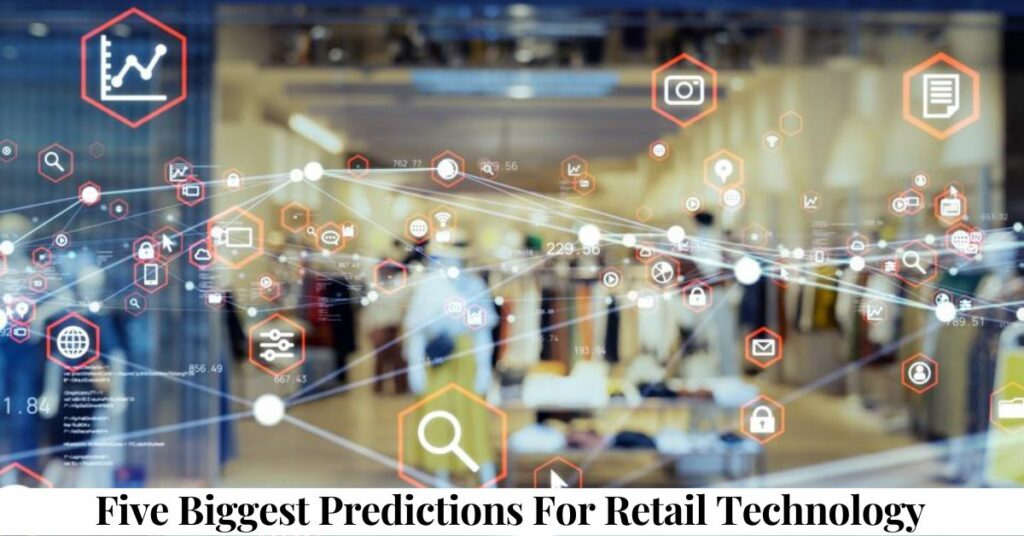Over the next year, the economy of most of the world looks like it will be rough and retail is usually one of the first industries to feel the effects. This is likely to cause more problems for brick-and-mortar stores which are still trying to get back on their feet after the covid-19 pandemic. But it also puts pressure on online stores to keep coming up with new ideas so that customers with less money to spend will still buy from them.
As inflation increases, the prices of everyday things like food and clothes and luxury goods sold by multinational conglomerates go up. At the same time, supply chain problems make it hard to run a business. As a result, some retailers are raising prices even more.
What is it? Use the power and potential of technology to give customers new and exciting ways to look around, buy things, and save money. Retailers use technology in several unique ways, both online and in stores. So, here’s a look at some of the most important trends to watch in 2023:
Customer Journeys That Are Both Hybrid And Omnichannel
Online shopping is very convenient because we can do it from anywhere and anytime, and we can buy almost anything without leaving our homes. It also lets retailers learn a lot about us by watching how we shop and combining that information with data from various other online sources to get a clear picture of who we are and what we want from our shopping trips.
At the same time, offline shopping lets us get what we need right away (if the store is open) and allows us to look at, touch, and even taste or smell products before we buy them. Hybrid shopping combines the best parts of online and offline shopping to make customer journeys perfect in every way.
In addition, you may enjoy these technological articles:
- Don’t Buy An Intel Arc Graphics Card Until You Know These 5 Important Facts
- Airpods Pro 2 Is Now $223 Prime Day’s Lowest Price
When we go shopping in a store, the store knows who we are and what we want, just like an online store does when we visit their site. In online shopping, this means finding ways to give customers the same shopping experiences they have in the real world. This could be done with new technologies that make personalization possible or with solutions for virtual and augmented reality (see below for more on all of these).
Online stores have made changes to logistics and inventory management that can be used by stores that aren’t online. For example, Amazon’s Style stores offer flexible ways to pay, home delivery options, and loyalty programs. At the same time, brick-and-mortar stores can teach online stores how to build personal relationships with customers and offer more than just a simple shopping experience. In 2023, retailers who want to build brand awareness and customer loyalty will need to adopt this hybrid mindset.
Shoppers Who Care About The Environment Continue To Set Trends
Businesses that want to thrive in retail in 2013 must continue to adjust to the fact that concerns about ethics, the environment, and long-term sustainability are becoming increasingly central to the decision-making process for many consumers.
About two-thirds of us identify as “belief-driven buyers,” meaning that we care greatly about whether or not the goods and services we purchase come from companies that adhere to sound environmental, social and governance (ESG) practices. Rather than being a burden or hindrance to business, companies that embrace this shift will discover they can more easily establish trustworthy relationships with their clientele and, in many cases, streamline their internal processes to serve their clients better.
The waste from excessive packing can be reduced, as can general energy use. The Korean retailer Coupang is an excellent case in point because it has decreased its packaging costs by 75% while simultaneously increasing brand loyalty and decreasing shipping times.
Technology that helps businesses discover novel approaches to addressing environmental and planetary risks in a transparent and accountable manner will be a significant retail trend in 2023 as consumers become increasingly aware of the growing severity of these threats.
Personalization Throughout The Customer’s Journey
Stitch Fix employs algorithms and surveys to match clients’ interests and sizes with garments. These lifestyle brands capitalize on the demand for individualized, distinctive products that reflect our personality or style.
This trend goes beyond clothing and shoes. Personalization is effective across the consumer journey, from sales and marketing to upselling and after-sales support. Businesses that effectively adapt to this trend in 2023 will use the variety of data points available to develop “special” or specifically designed products and services. They’ll build individualized touchpoints across the customer journey, making customers feel they’re built for them as individuals. Capitalizing on this trend requires “personalization at scale.”
Shopping And Delivery Without Cash, Without Contact, And On Their Own
This trend focuses on the “final mile” of retail, combining hybrid and omnichannel ideas. Consumers want more streamlined and efficient payment and delivery of goods and services. Buy-online-pickup-in-store, buy-online-return-in-store, and buy-online-pickup-at-curbside are becoming standard. AI and advanced analytics automate the needed inventory management operations. It’s also needed for the new autonomous delivery methods stores are testing, piloting, and deploying.
Starship’s delivery robots have made over 100,000 autonomous deliveries in the UK, USA, and Europe since the outbreak. Amazon’s Scout delivery robots are prevalent in US places like Irvine, California, Atlanta, Georgia, and Franklin, Tennessee. Automating this part of the process allows enterprises to lower their carbon footprint because the vehicles are usually electric and can be powered by solar. Retailers will face an ethical problem in the coming year in handling this switchover, given its impact on thousands of human delivery drivers.
Stay connected to our homepage for more such updates, Journalistpr.com

